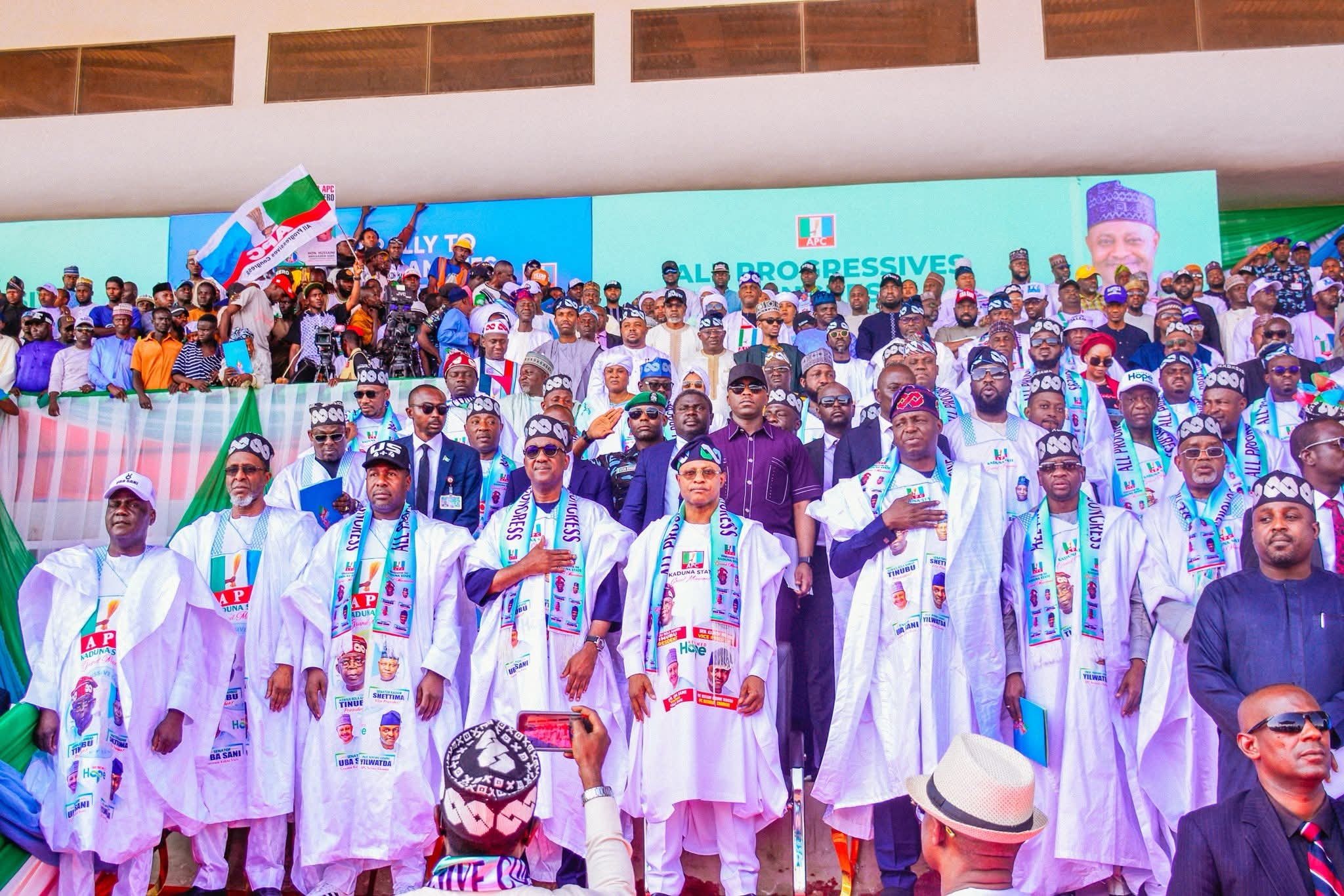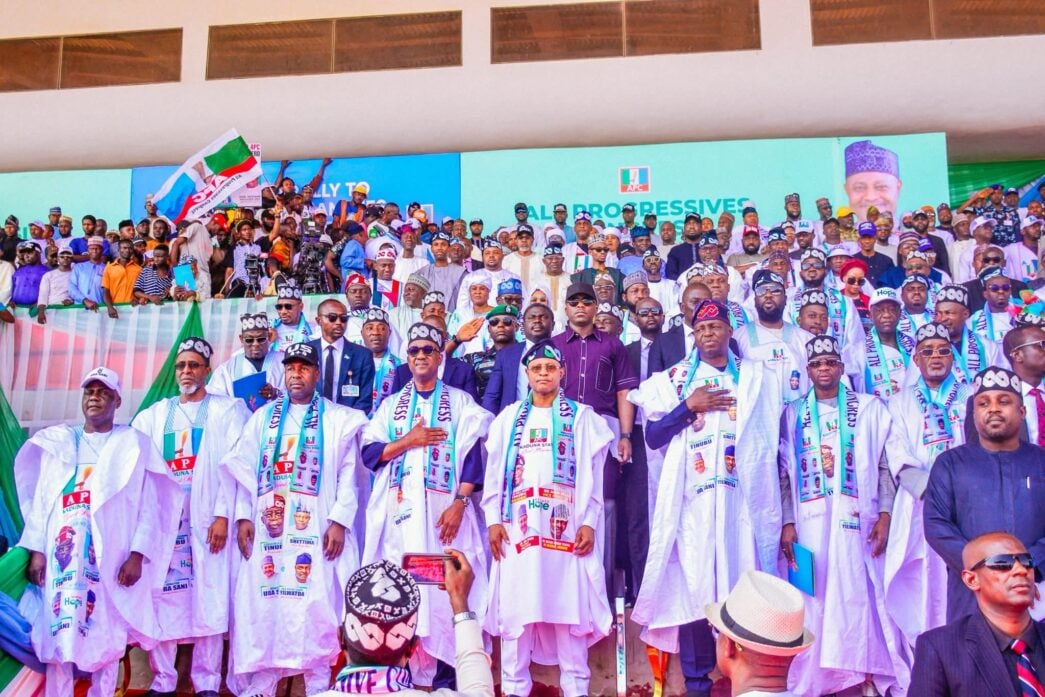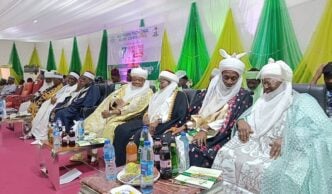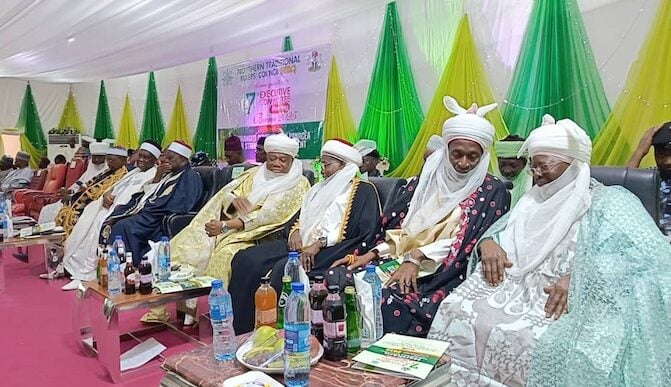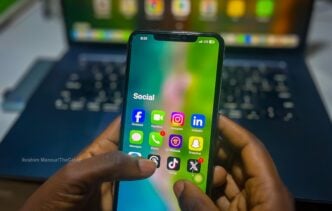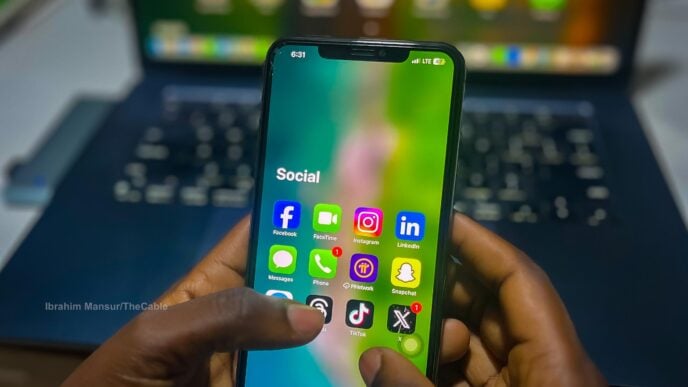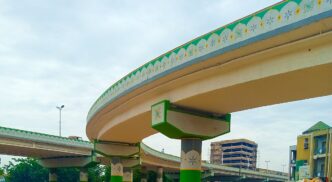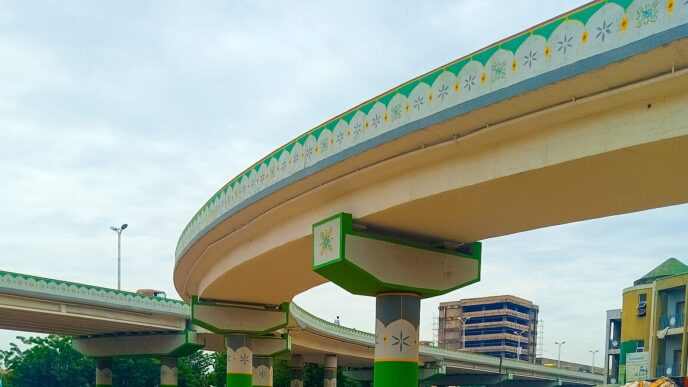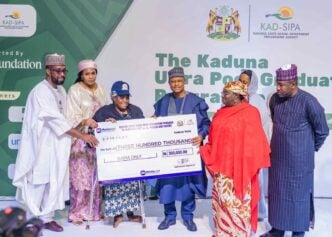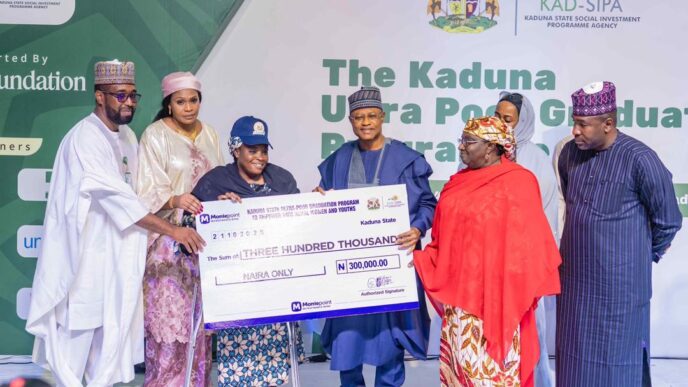BY EMMANUEL ADO
In Japanese, the word “tsunami” means “harbor wave,” a sudden, powerful surge triggered by an undersea earthquake. It is fast-moving, unpredictable, and capable of traveling vast distances, leaving widespread destruction in its wake. In a similar vein, Senator Uba Sani, the Governor of Kaduna State, has undeniably disrupted the state’s political landscape by unleashing a political tsunami in Kaduna State in every sense of the word. Last Saturday, he literally decimated what was left of the Peoples Democratic Party (PDP) in Kaduna State, with the mass decamping of several members of the PDP.
Since assuming office, Governor Uba Sani has challenged long-held assumptions in Kaduna State. Chief among them is the belief that the people of Southern Kaduna would never align with the All Progressives Congress (APC), a party they once broadly dismissed as a “Muslim party.” It’s a testament to Sani’s political sagacity that he has unsettled deeply rooted expectations and redrawn lines many thought were etched in stone. Before last week, whenever the PDP failed in the entire North-West zone, you could trust the people of Southern Kaduna to return its candidates. It was a safe haven for the party.
But beyond the metaphor of a political tsunami lies a more sober, pressing question: has Governor Uba Sani truly caused a political earthquake with the mass decamping of PDP members to the APC—one that has reshaped the terrain—or is this merely a fleeting ripple in waters that remain deeply turbulent?
I think he has. Even though, as the saying goes, forty-eight hours is a long time in politics. So, should the APC be confident, or should it remain wary of the PDP, which, despite the APC’s control of the executive, secured all three senatorial seats and eight out of eleven National Assembly seats in Kaduna State during the 2023 elections?
Advertisement
There is no doubt that Kaduna State feels different. Uba Sani’s early efforts to proactively engage with the Southern Kaduna people surprised even hardened skeptics, but they have paid off. For the first time since 1999, when the military handed over power to civilians, Kaduna State is once again moving in one direction and in unity.
Southern Kaduna’s frosty relationship with the APC wasn’t built overnight. But the deep wounds from violent conflicts, perceived marginalisation, and exclusion from power are being addressed. Uba Sani has not only adopted a softer tone but is determined to offer a fundamentally different agenda.
To his credit and to that of the President, tangible developments stand out, and they go beyond optics.
Advertisement
First was the appointment of General Christopher Gwabin Musa as the Chief of Defence Staff (CDS). Though this is not the first time the region has produced a CDS, it was the first such recognition after eight years of pointed neglect under the late President Muhammadu Buhari. During Buhari’s administration, Southern Kaduna was conspicuously excluded from federal appointments, unlike during the PDP years, when it produced two Chiefs of Army Staff, one of whom became CDS, a Chief of Naval Staff, several ministers, and the Group Managing Director of the Nigerian National Petroleum Corporation (NNPC). General Musa’s elevation offered not just symbolic healing but also sent a clear message that the region matters again.
Then came a series of institutional investments. The establishment of a Federal University in Kachia, long demanded by the people of the zone, and a Federal Medical Centre in Kafanchan—both have addressed glaring education and healthcare deficits. Previously, the people had to travel to Jos, Plateau State, for medical treatment.
Even before becoming governor, during his time as senator, Uba Sani facilitated the establishment of a computer centre at the College of Education, Kafanchan—a modest but meaningful step in expanding digital access. It must be pointed out that Kafanchan is outside his senatorial district. That singular gesture significantly shifted public perception in his favour.
These are not minor gestures. For a region that has suffered long marginalization and exclusion, they represent a shift not just in policy but in political attention.
Advertisement
The claim that Kaduna is “moving in one direction” is not merely political rhetoric. Beneath the surface, old tensions may still simmer, but the APC’s growing acceptance in Southern Kaduna is indicative of a willingness to engage. It could, however, be tactical. Political realignment in Nigeria is often driven less by conviction and more by opportunity. If Uba Sani’s policies don’t deliver impact, this new warmth could quickly dissipate. That is a challenge before him.
Thankfully, Governor Sani speaks the language of inclusion and acts it. He has gone beyond symbolism and has shown a willingness to confront the deeper structural and emotional fractures of the past. By establishing the Kaduna Elders Committee and appointing General Zamani Lekwot as co-chairman, he has demonstrated a real desire for unity.
The governance challenges remain daunting. Though Kaduna still suffers from pockets of insecurity, the killings in Southern Kaduna have drastically reduced, just as the Birnin Gwari area is also experiencing peace.
Understanding that citizens want functioning schools, good roads, accessible healthcare, and real opportunities, the governor is making efforts to meet these needs.
Advertisement
Governor Uba Sani can justifiably claim that the wave of defections to the APC—from Southern Kaduna and beyond—is proof that the party has finally broken through a previously hostile territory. It is also, to a large extent, an endorsement of his leadership.
Some analysts have suggested that many of the defectors had no choice but to align with the ruling party at both the state and federal levels in order to access appointments, contracts, and political relevance. That might be true, but again, with critical projects dotting their constituencies, these politicians are simply reading the political handwriting on the wall and have repositioned themselves accordingly.
Advertisement
While there is wild jubilation in APC circles over these gains, a word of caution is necessary. As with every human relationship, the old must be balanced with the new. Some long-standing party members, especially the older political hands, fear being displaced by newcomers. Their concerns are valid. They helped build the party when it wasn’t fashionable to be a member of the “Muslim APC” and suffered abuses for it.
If Governor Uba Sani fails to treat them with the respect they believe they deserve, the internal cohesion he is building could be undermined.
Advertisement
While Southern Kaduna may seem like the APC’s biggest frontier, the greater challenge may lie closer to home—the Kaduna Central Senatorial District seat, currently occupied by the PDP. There is no doubt that the ambitions of some political gladiators will clash.
Yusuf Zilani, a former Speaker and a current member of the Kaduna State House of Assembly, is definitely interested in the seat—an ambition that reflects his long-term political calculation of remaining relevant. However, his path to achieving his ambition is not that clear. His joker is that, since the National Assembly elections come first, he can “blackmail” the governor into supporting him with threats of playing a spoiler in the governorship elections. Aminu Zaria, a childhood ally of the incumbent governor, is equally seen as a potential contender. Will his proximity to the governor translate into powerful backing or be his albatross? Former Senator Shehu Sani is also being mentioned, but he has burnt his bridges. He hasn’t recovered from the defeat his good friend, the governor, handed him in the 2019 elections. Meanwhile, the name generating the most buzz in political circles is Yusuf Hamisu Abubakar, better known as “Mai Rago.” His candidacy, though yet to be officially declared, is being vigorously promoted by a coalition of influential elders who see him as a consensus candidate capable of uniting diverse political blocs. Their pitch is clear: Kaduna needs its best at the national stage, and Mai Rago, with his populist appeal and pedigree, should fly the Kaduna Central Senatorial District banner.
Advertisement
Zilani’s argument that Igabi Local Government deserves the seat, which he claims has been monopolized by Kaduna North, is easily defeated by the fact that Mai Rago is from Kaduna South Local Government. He has the network to represent the district.
Another potential flashpoint is the Kaduna North House of Representatives seat. Bello El-Rufai, son of the former governor and current occupant of the seat, remains a close ally of Uba Sani. Samaila Suleiman, a former member, reportedly wants to return to the House. He fears the governor will support Bello, leaving him out in the cold. What will he do?
The situation is no different in the Kaduna South Senatorial District. Danjuma Laah, the former senator unseated by Sunday Marshall Katung, is reportedly plotting a return to the red chamber. This was before Katung decamped to the APC. To manage the fallout, Uba Sani might consider appointing Laah as deputy governor to appease him.
At the heart of these tensions lies one of the biggest headaches for any Nigerian governor: appointments. Every Nigerian politician wants a stake, and not just any post, but high-profile ministries like Finance or Works.
For the primaries, there are strong indications that Governor Sani will remain as neutral as possible, allowing the candidates to compete among themselves for the delegates’ votes.
While Uba Sani has tried to balance merit with political demands so far, he will, in the coming days, manage expectations more carefully, because many of the defectors and loyalists want more than handshakes. They expect rewards. And if those expectations are unmet, today’s supporters could become tomorrow’s enemies.
How the governor balances these competing interests and compensates those who feel sidelined will determine whether he can hold the house together. During the run-up to the local government elections, similar fears were expressed, but the governor proved to be a master of the game.
To his credit, Uba Sani deeply understands that consensus-building among Kaduna’s political elite across party lines, ethnic blocs, and religious divides is not optional but is essential for his political survival. His consultative approach has definitely opened up the political space.
Governor Uba Sani has triggered a wave of transformation. Though waves, by nature, recede, Governor Uba Sani’s political tsunami, from every indication, would not fizzle out. A tsunami is transformative because it reshapes the landscape, like Uba Sani has altered the Kaduna State political landscape. And beyond uniting the state under the APC, he will show the tremors of real change by over-delivering on his promises in a bold, sustained, and inclusive manner.
Views expressed by contributors are strictly personal and not of TheCable.
